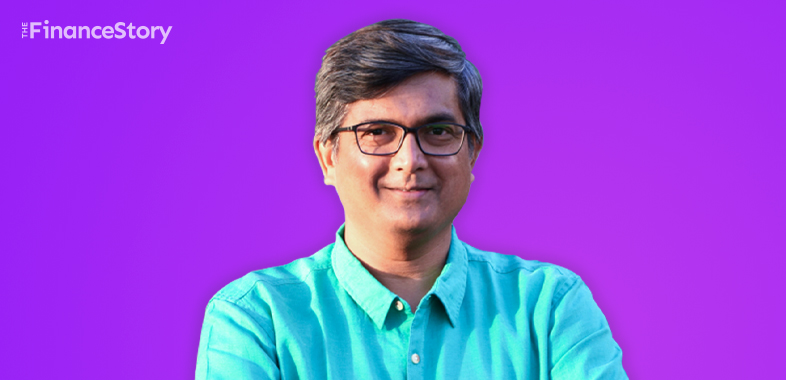Finance Professionals are conservative when it comes to crypto, but they are an integral part of this ecosystem.
We talked to CA Avinash Shekhar – Former CFO and CEO of crypto exchange Zebpay, to understand why he is starting his own in the Web 3.0 space.
Incidents like FTX and other crypto failures are creating a demand for finance professionals in the crypto industry, says Avinash.
Why did you decide on starting your own, that too in the Web 3.0 space? How did the idea come about?
There was always a desire to start something of my own. Over the five and a half years that I was with Zebpay, a leading bitcoin and crypto exchange app, I acquired immense experience in the Web 3 space.
I saw its potential in revolutionizing the financial system and realized that decentralization is the future.
When the Indian Government announced that it would levy a tax of 30% on income from crypto I started researching what is happening globally in the crypto taxation area.
I found out that a very limited number of people in the Crypto or Web 3 ecosystem are focusing on compliance and taxation areas.
If this industry is to move to the next level which is, to build decentralized companies akin to banks or traditional financial institutions, tax compliance is an integral part. and it applies to businesses as well as individuals.
I want to bridge the gap between the Government and the Web 3 space. So I said, this is something where I can help customers with, help them compute the taxes on their crypto transactions.
Tell us about your startup. What problem is it trying to solve?
For average salaried people in India, it is very easy to file their income tax returns. Everything is in Form-16 and they just need to fill in the necessary details and submit it.
Or they can go to Tax platforms like Cleartax, where the process is even easier. Similarly, local Chartered Accountants tie up with the companies and in a day they file 500 or 1000 tax returns.
In the case of crypto, a majority of people have accounts in more than one exchange.
Let’s say a person bought a type of cryptocurrency from one crypto exchange and then transferred it to another exchange and sold it. The latter wouldn’t know at which rate the person bought the digital asset.
And when the number of transactions increases it becomes complicated to calculate the Profit and Loss (P&L). An average individual can’t possibly do it on his own, he needs professional help.
You can always go to your CA but he or she is going to spend two or more hours on it and charge you 400 – 500 USD.
That is why we are building a technology that will gather data from various crypto exchanges that you’ve used, bring them in one place, do the reconciliations, and automatically calculate the P&L and the applicable rate of taxes.
We obviously need to tie up with CAs in the backend because certain things can’t be 100% automated. Sometimes one needs to go and check if everything is fine.
Will there be more career opportunities for finance professionals in crypto because of incidents like FTX failure?
There are more than 500 crypto exchanges, but if you look closely many of them don’t have senior finance professionals in their teams. Doesn’t matter if it is to prevent fraud or not, this space needs finance professionals. They will take care of the accounts, and make sure that no mislocation of funds has occurred.
Suppose you are an auditor of a crypto exchange, before signing their financial statements, ask yourself this question, “Do I understand what I am signing? Do I understand the risk involved in it?”
When signing the balance sheet they need to apply the same rigor as when they do for a financial institution, even though crypto regulations are lagging.
These exchanges are custodians of customer assets. Customer asset is an off-balance sheet item for them. But for an auditor, knowing how much the exchange holds in customer assets is more important than what is shown on the balance sheet.
Regulation should play a role. But until it becomes standardized and the framework is in place, every auditor needs to take a stand, and take his own decision, and risks.
What would you tell the finance professionals who want to be a part of Web 3 or crypto?
It’s all about having an interest. As far as I’ve seen, finance people are much more conservative when it comes to crypto.
So first they need to understand what decentralized technology means, what is bitcoin, what problem it proposes to solve, how to transfer crypto from an exchange wallet to a hardware wallet, or from one private wallet to another one, and how to track crypto transactions.
Then comes education. Everything about crypto is available online. Books like ‘The bitcoin Standard’ and ‘The Sovereign Individual make for a great pathway to your crypto journey.
They can also follow the Youtuber, Andreas Antonopoulos who explains the aspects of bitcoin very beautifully. Once they start educating themselves it will bring them more confidence that it is not a speculative industry where people come and try to make money.







